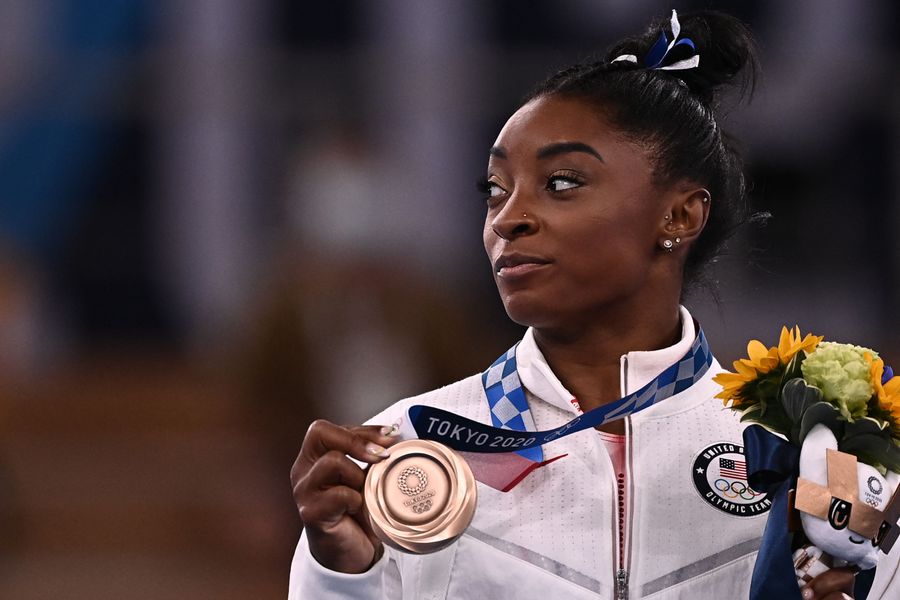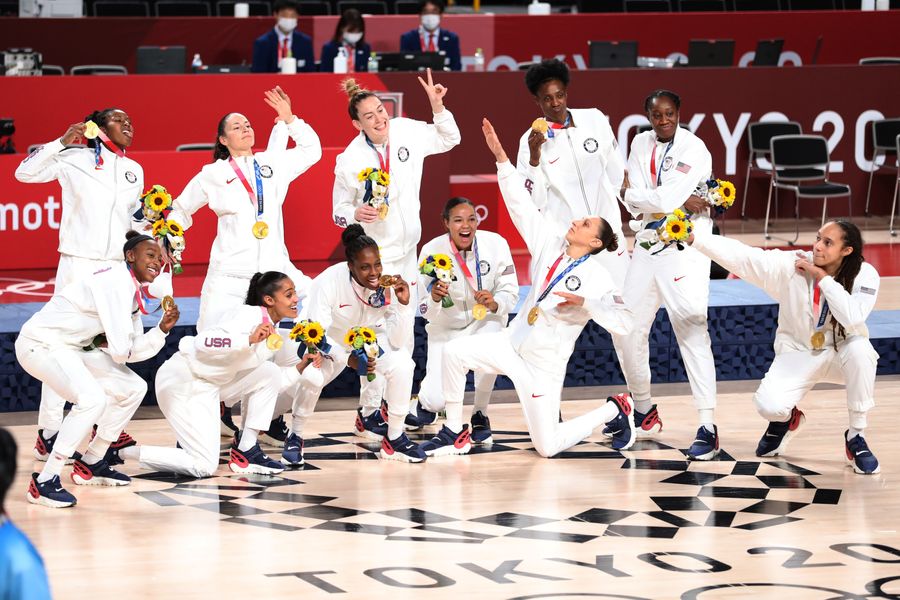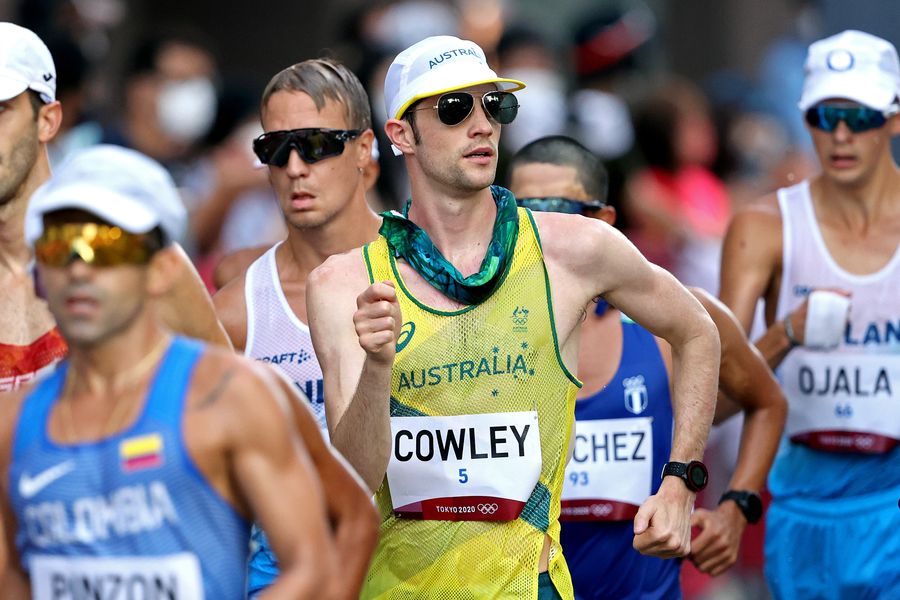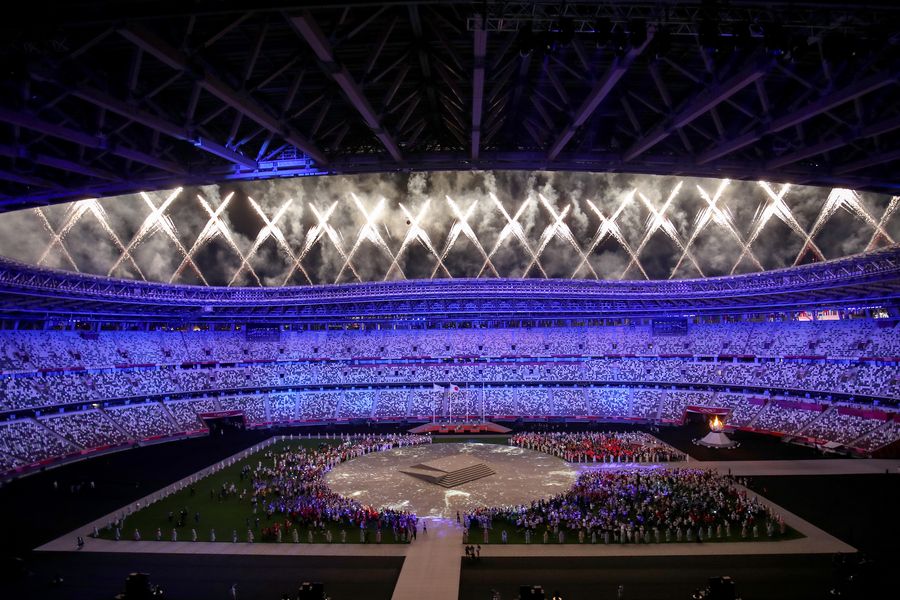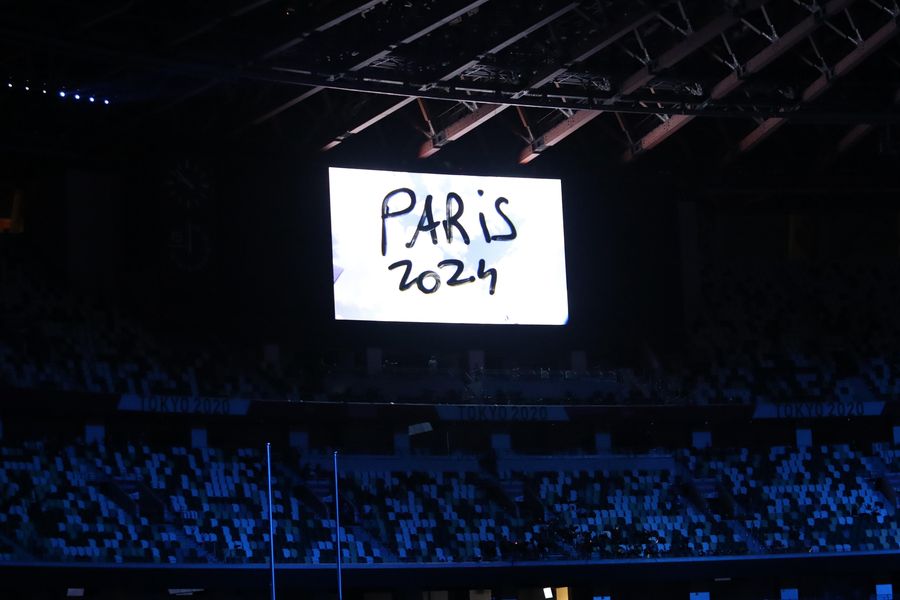
The Tokyo Olympics were unlike any other, held in the middle of a pandemic, with no fans, with all participants largely isolated from the world they came to represent. Many thought the Games would never get started, but now, somehow, they’ve been successfully completed. Well, maybe “successful” isn’t the right word. But they are finished. Here’s a look back at ten takeaways from an Olympics that, with any luck, will never resemble any other again.
.
COVID couldn’t stop the Games
Nearly every story leading up to the Olympics (and most of them over the first few days once they began) focused on positive COVID tests, the citizens of Tokyo desperately wanting the Games to go away, and the seeming insanity of having people come in from all over the world at the exact moment the host city was having a surge in cases. One expert said the Olympics could be a “super evolutionary event” for COVID. Would the Olympics make it all the way through? Would they even get started? The answer, perhaps inevitably, was yes: By the time the Games were halfway over, hardly anyone was talking about COVID at all. This mirrors what happened in professional sports when they started their seasons in the pandemic: Everyone said it was a terrible idea, that we shouldn’t be doing this, that they’ll never finish … and then a few games got going and everyone got sucked in as always. Thus far, the Olympics does not appear to have been a superspreader event, and all told, after the first week, there weren’t very many positive tests. It wasn’t always pretty, but they did end up muddling through. The Olympics may just be unkillable.
.
Simone Biles ended up being the biggest story, but not in the way we all thought
Biles was expected to dominate the coverage of these Olympics, and she did. But it was how she did it that mattered. Her withdrawal from the team competition led to an all-encompassing debate about mental health in sports, and for all the gross hot takes out there, the conversation ended up being a productive one: Biles’s legacy may end up being known as much for what she did to advance that discussion as for all her Olympic medals. And in the end, she wound up standing where she always stands: on the medal podium.
.
Americans were not watching and NBC is still smarting, but who cares?
Even if you enjoyed aspects of these Games, there is no question that, without fans, much of the joy was sucked out of many of the events, a tone set by the Opening Ceremony, which felt like it was happening in an abandoned airplane hangar. That lack of joy led to some dreadful television ratings, which is a big deal for NBC but, well, I’m never quite sure why the rest of us are supposed to care about whether big corporations make enough advertising money to please their stakeholders. The Olympics are not going away, and if you found them weird to watch this year, you can watch the Winter Olympics next year or the Summer Olympics in three years, or maybe you won’t — it doesn’t matter, the bottom line of NBCUniversal honestly doesn’t affect many people’s lives at all. Peacock’s survival isn’t dependent on the Olympics, and yours isn’t either.
.
Also, NBC did a pretty terrible job
It is always difficult to broadcast an Olympics that is happening halfway around the world, with no major events happening in American primetime. It’s especially complicated when you are attempting to introduce a high-stakes streaming service you’re desperately trying to promote through these Games. But still: It does seem sort of important that when you pay billions of dollars to air a sporting event, you should make it easy for people to watch said sporting event. Viewers lacked the basic ability to figure out when these events were airing, and on what channel, and whether or not they were on the right Peacock subscription tier to watch them anyway. NBC has complained about the “perfect storm” of circumstances that led to their low ratings. But even the most dedicated viewer found themselves having to map out their viewing strategy like they were solving a calculus problem. It is no wonder that many simply gave up.
.
The best American team in the world is, as always, the women’s basketball team
For all the talk of the men’s gold medal–winning team led by Kevin Durant or the high-profile stumble by the USWNT, the team that simply went out and dominated, like it does every four years, was the American women’s basketball team, which won its seventh consecutive Olympic gold on the final day of the Games. As Tom Ziller wrote in his terrific basketball newsletter: “Team USA women last lost in the Olympics in Barcelona in 1992. Six of the 12 players on the current Team USA women roster were not alive when the team last suffered an Olympic loss. In all global tournaments since 1996 — the Olympics and the FIBA World Cup (née the World Championship) — Team USA is 101-1.” They’re still having the time of their lives too:
.
Protests didn’t end up being a big deal
The other big concern heading into the Games for the International Olympics Committed was supposed to be all the protests. They were partly concerned about people outside chanting — without a crowd to drown them out — but mostly worried about athletes themselves making political statements on the medal stand. (This seemed to bother the IOC more than most observers.) It didn’t end up mattering that much: There weren’t many athlete protests, and the ones that happened, like USA shot-putter Raven Saunders, who put up an X on the silver medal stand, did not end up being called out by the IOC. (Though perhaps only because Saunders’s mother sadly died shortly afterward.) The only part of these Games that were overtly political ended up being right-wing American commentators weirdly rooting against Team USA.
.
These Olympics were absolutely miserable to attend
I have many friends who covered the Olympics as media members this year, and checking in with them felt like some sort of virtual conjugal visit to someone trapped at the bottom of a well. Media members — again, the only people actually allowed to be in attendance at the Olympics this year — weren’t allowed to go anywhere but the Games’ venues and their hotel rooms, which means they essentially spent the Olympic fortnight alone in a very small box. Athletes complained constantly about the isolation as well. One friend told me that “being at the Olympics is the loneliest I have been in my entire life.” Olympic Fever, catch it.
.
The judges at the racewalking competition are a metaphor for … something
The thing about racewalking is that you have to stay at a walking pace or you are penalized; that’s why it’s racewalking. But that also means that a series of definitionally pedantic human beings have the unenviable job of telling someone who is trying to win a race that they are moving too fast. If you wondered who hall monitors grew into, this is what they grew into.
.
The closing ceremonies were entirely fitting
Because athletes were required to leave within 48 hours of their competitions ending, the flag-holders and ceremonial attendances were largely volunteers, which was probably how these games were destined to end: with seat fillers doing everything they could to pretend this was normal. The whole closing ceremonies had the feel of a rapid cleanup after a car-accident scene, not so much fleeing the scene of a crime as trying to quickly erase any memory of this happening at all. The Tokyo Olympics will forever be known as those Olympics, the ones where it was weird and awkward and scary and deathly quiet but, dammit, they still got them finished, and that, in the end, was enough. The individual athletes will all have their deserved glories. But everyone else involved would probably just as soon forget this one ever happened.
.
No one will care about any of this in three years
This is the cruel beauty of the Olympics: An Olympiad is long enough (even if it’s only three years this time) that most of the bad stuff gets washed away the next time it comes around. When the Paris Summer Games kick off in July 2024, we (hopefully) will have moved out of the age of COVID, and, in the midst of what will surely be an absolutely miserable presidential campaign season, will be in the mood for the escapism and disposable inspiration that the Olympics can provide. These Olympics were a total mess, and, as always, there are strong arguments to be made that they are not worth the effort and expense. And then in three years, they’ll come back around, awkwardly charming as always. We’ll be happy to have them.



